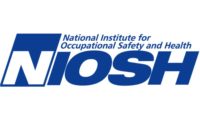The theme for today’s international event, World Day for Safety and Health at Work, “Workplace Stress: a collective challenge,” stems from a growing recognition of the impact of psychosocial risks and work-related stress among researchers, practitioners and policymakers, according to the International Labour Organization (ILO).
The group says psychosocial risks such as increased competition, higher expectations on performance and longer working hours are contributing to the workplace becoming an ever more stressful environment.
Causes
Making it worse: high levels of global competition and 24/7 communication that blurs the line separating work from home life.
“In addition, due to the significant changes labour relations and the current economic recession, workers are experiencing organizational changes and restructuring, reduced work opportunities, increasing precarious work, the fear of losing their jobs, massive layoffs and unemployment and decreased financial stability, with serious consequences to their mental health and well-being,” says the ILO.
Work-related stress is now generally acknowledged as a serious workplace issue, one which safety professionals will get some help addressing by the International Standards Organization’s (ISO) standard-in-development for occupational health and safety (OSH) management.
OSH management standard addresses psychosocial risk
The ISO says the (OSH) management system called for in the standard will help companies improve the mental well-being of their employees by providing provisions for identifying and managing hazards and risks, and implementing measures to ensure employees are not subjected to excessive workloads, there is adequate supervision and clear processes are put in place for communication and consultation between management and staff.
Additionally, the IOS says the standard will help reduce work-related accidents and ill health and create a positive health and safety culture.
To learn more about the progress of ISO 45001, see ISO 45001 page.
To find out more or get involved, contact your national ISO member.


